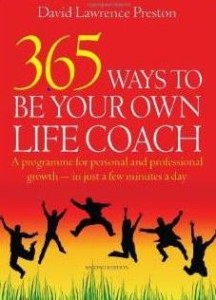There is ultimately only one route to success that brings true happiness: find a purpose that excites you and pursue it, using your talents and potential to the full.
In her book, ‘The Fourth Instinct’, Arianna Huffington writes:
‘Give a gibbon a mate, a peaceful stretch of jungle and plenty of figs to munch on, and he will most likely live in contentment for the rest of his days. Give a man or woman an environment correspondingly idyllic – say, a successful career, adorable children and all the comforts civilisation has to offer – and we feel dissatisfied, restless and vaguely aware that there is something very important missing from our lives.’
Similarly, Dr Carl Gustav Jung, the influential psychotherapist, wrote, ‘About a third of my cases are not suffering from any clinically definable neurosis, but from the senselessness and aimlessness of their lives.’
Fully functioning individuals have found something that brings purpose and meaning, which inspires them and gives direction to their lives.
You came into the world to accomplish something worthy of you – not small or insignificant – and make a contribution to life on this planet. If you’re not yet aware of your life purpose or ‘mission’ it’s not because you don’t have one. It’s because it’s lying dormant somewhere within your consciousness, waiting to be discovered. So find out what you came here to do. And do it!
This is not an intellectual process; you can’t usually analyse it or think it through logically – you need to get in touch with your intuitive inner self.
Be clear on your true values
Before you can really know what your purpose is, you must have a solid sense of what is really important to you – your values. Your life goals must be in complete harmony with your values.
George Gershwin once approached Maurice Ravel, creator of the famous ‘Bolero’, for instruction in orchestral scoring. After several lessons, Ravel was exasperated. His student hadn’t even grasped the basics. ‘If I were you,’ he advised, ‘I would be happier to be a first rate Gershwin, rather than a second rate Ravel.’
The same applies to you. Be a first-rate you, not a second-rate someone else! Honour your talents and live your values. You may think you do already – but are you clear on what your values actually are?
Our values are often shaped haphazardly. As children, we initially adopt our parents’ values, then, as we grow, we modify them. The following method will help you decide which values are most important you.
Take a pen and notepad and write down:
1. What do you stand for? What would you defend with your life if necessary?
2. What do you enjoy? What really turns you on? What turns you off altogether?
3. If you could only improve one area of your life, what would it be?
4. What for you would make the world a better place? A worse place? And what, if anything, are you prepared to do about it?
Now take this opportunity to think about your values by ticking one box per row in the table below:
|
How important to you is/are your:
|
Crucial |
Important
|
Quite important |
Not very important |
Totally unimportant
|
| Health and physical appearance? |
|||||
| Having lots of money? |
|||||
| An enjoyable career? |
|||||
| A good social life? |
|||||
| Family life? |
|||||
| Leisure activities and hobbies? |
|||||
| Fun |
|||||
| Personal development? |
|||||
| Spiritual growth? |
|||||
| Happiness? |
|||||
| Security? |
|||||
| Independence? |
|||||
| Acknowledgement by others? |
|||||
| Your environment? |
Now – do you feel you’ve been paying too little attention to some of your most cherished values? Have you, for instance, been giving your children too little time, or ignoring your health, or worrying too much about what other people think or having fun. If changes are required, make a note of them. It’s time to do something about it!
©David Lawrence Preston, 27.5.2016
Follow me on Facebook and Twitter @David_L_Preston
How To Books, 2004


